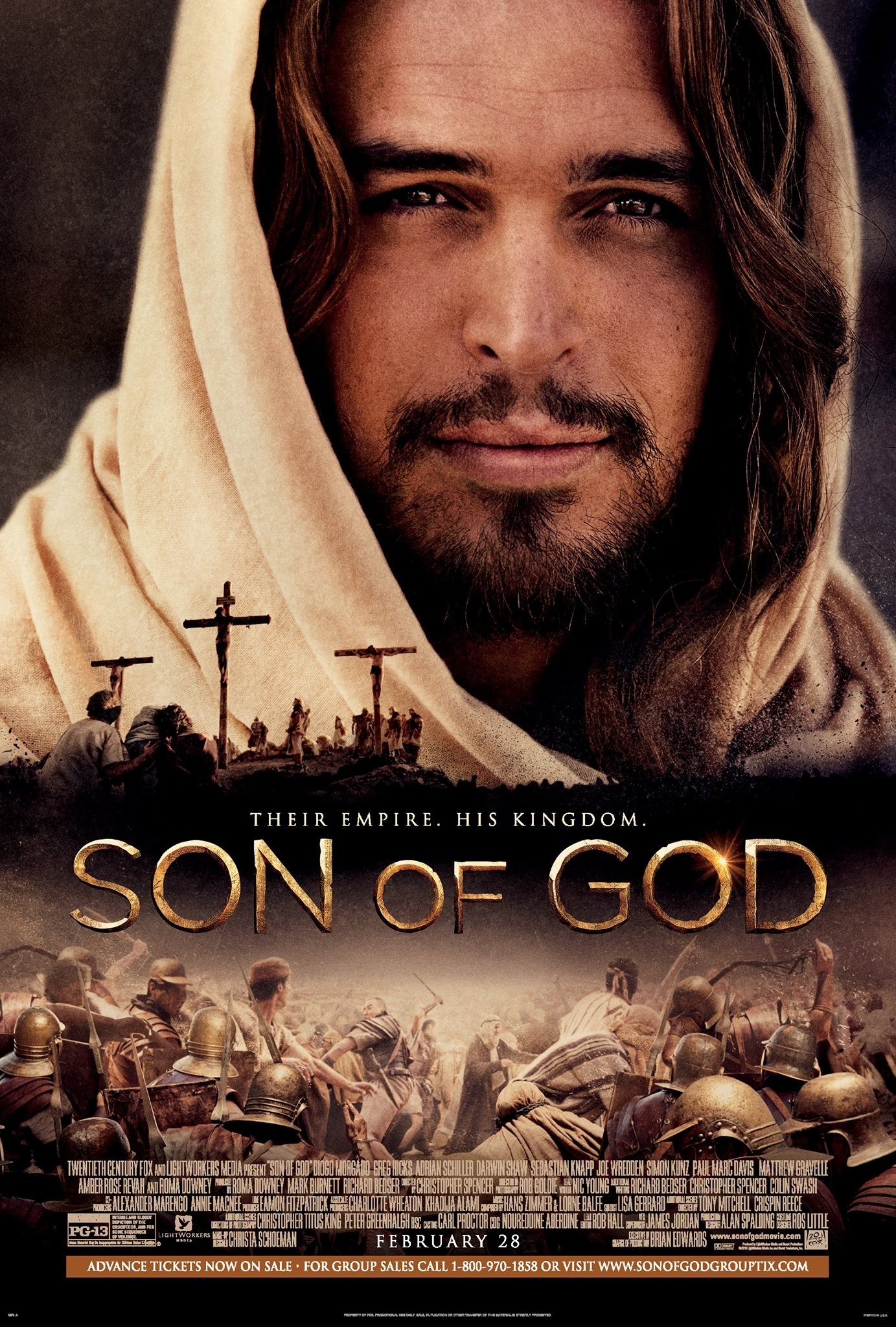By Kyle Smith
February 26, 2014

I’m pretty much without sin, so gimme some rocks: “Son of God” envisions a J.C. that’s strictly J.V. It’s a film inspired less by the Bible than by a somewhat lesser guide to Christian precepts: “Jesus for Dummies.”
A repurposed segment of last year’s History Channel miniseries “The Bible,” the film stars Diogo Morgado, a Portuguese actor billed as “the first Latin Jesus.” He makes for a sunny, can-do Portuguesus wandering the land with a miracles-on-demand service available to anyone who walks up to him. He seems oddly, disturbingly in love with himself as he dazzles the Israelites with his fluorescent, Brad Pitt smile.
It trivializes Christian thought to reduce the parables to one-liners and the miracles to magic tricks, but the film was made with the entirely unsurprising input of Joel Osteen, the charlatan self-help guru who has advised his followers that prayer can help you snag a good parking space.
“Son of God” is guilty of all the sins of the 1950s Bible epics, but without any of the majesty. The supporting characters lack depth, and the actors are blocky and silly, lugging around those half-British accents that supposedly indicate seriousness. The special effects aren’t good enough for the big screen — Jerusalem looks like it was created out of Legos — and the overbearing soundtrack turns what ought to be quietly transcendent moments into corn syrup. The Last Supper? Doesn’t need a lot of embellishment. It’s a profound moment. So why bury it under the rubble left by orchestral bombardment?
Unlike the ’50s movies, though, “Son of God” — which was produced by Roma Downey (who also plays Mary, the Mother of God) and her husband, Mark Burnett — lacks a star as magnetic as Charlton Heston. Nor does it deliver knockout Hollywood showmanship: Director Christopher Spencer is Cecil B. DeMiddling.
He’s constrained by a low budget, but he also misses every opportunity to go the other way and be reflective. Rarely does he pause to consider how strange it must all have seemed, how long the odds that a loner and his tiny band were creating the dominant Western ideology of the next two millennia. An exception is Spencer’s pleasingly low-key staging of the Sermon on the Mount, seen here by only about 40 people, spread out lazily on a rock.
But after a minute or so, Spencer has checked it off his list, and we race ahead through every scene and aphorism that people who don’t read the New Testament have heard of: Jesus walking on the water, filling Peter’s net with fish, giving Lazarus a new life, turning over the tables of the money-changers in the temple.
Meanwhile, evil Jewish elders lurk in Jerusalem, fretting that Jesus’ antics will cause the Romans to cancel Passover. (As in many movies of this kind, the bad Jews look a lot more stereotypically Jewish than the good Jews.) The editing structure is: miracle, scheming villains, miracle, scheming villains. Though his followers call him “Rabbi,” Jesus here is more entertainer than teacher. Who wouldn’t follow a guy so agreeable, so ready to fix your troubles? “Son of God” is like one of those Good News Bibles that avoids words of more than two syllables.
Only in the last hour does the film slow down, and it’s much steadier when it comes to the trial and the Crucifixion. These scenes are necessarily brutal, but the PG-13 rating is indefensible; this must be the bloodiest film of that rating I’ve ever seen. If not as gory as Mel Gibson’s “The Passion of the Christ,” it is comparable to Martin Scorsese’s R-rated “The Last Temptation of Christ.”
If Christ’s message is largely lost by the film, his agony is palpable and visceral, the scale of the sacrifice dizzying. Too bad the film doesn’t end there instead of moving on to a cheesy rendering of the Resurrection, featuring a white-clad Jesus with daylight shining through the hole in one palm (but his head injuries healed over nicely). Checking in at Emmaus, he cheers up an apostle with the casual line: “Thomas, stop doubting.” The King James Version this isn’t.
No comments:
Post a Comment